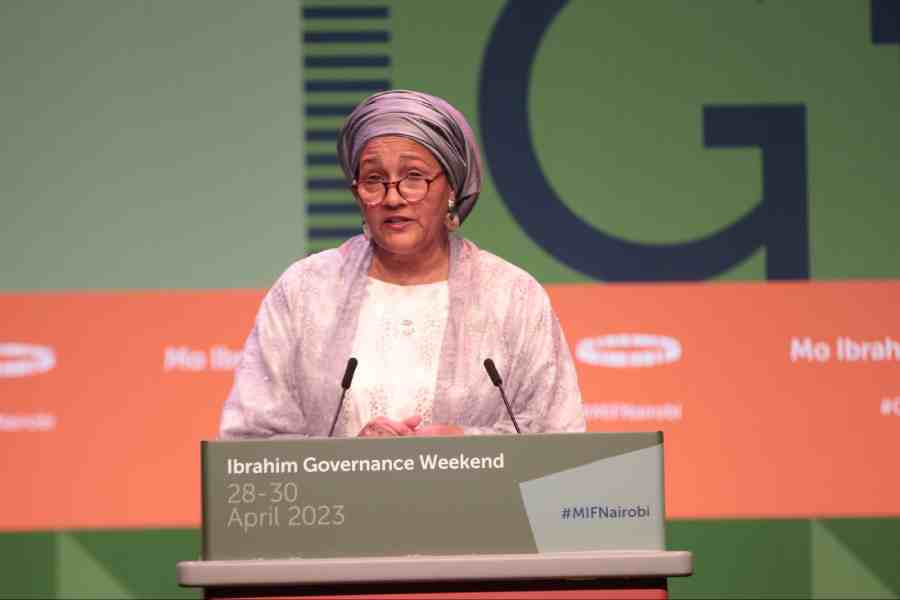"First is Bollywood," UN Deputy Secretary-General Amina Mohammed made a reference to the film industry in India as she addressed the graduating class at a prestigious American university.
“If I were to ask you where most movies in the world are produced, what would you answer? I don’t blame you if Hollywood comes to mind,” Mohammed said in her address at Tufts University Commencement Sunday.
“But it’s wrong. It’s not even in second place. First is Bollywood in India. Second is Nollywood in Nigeria,” she said.
Addressing the graduating class of 2023, Mohammed added: “If I were to ask you which country has the most women in parliament? The answer isn’t Sweden. It’s Rwanda – followed by Cuba.
“If you had been asked in 2020 where we would see a major conflict break out within a year – how many of you would have said Europe?” Mohammed, the deputy leader of the United Nations, said “the point here is not to say that everything you thought you knew about the world is wrong. Rather, it’s to say that the world today is infinitely more complex, multi-faceted – and frankly, richer and more interesting – than received narratives would have you believe.” She underlined the need to acknowledge the “vibrant creative industries emerging from the Global South, whose artists, filmmakers, and cultural pioneers are not only contributing substantially to their economies but also breaking boundaries, challenging stereotypes, and reshaping the narratives of their regions.” Bollywood is the popular name for the Mumbai-based Hindi film industry. The Indian film industry is the largest in the world in terms of number of films produced. India produces 1,500-2,000 films every year in more than 20 languages, according to information on the website of Nivesh Mitra, the single window system of the Government of Uttar Pradesh.
The Indian film industry comprises cinema from across the country including Bengali, Marathi, Malayalam, Telugu and Tamil languages.
According to market and consumer data provider Statista.com, in India in 2022, the most number of films released were in Telugu, tallying 278 films. This was followed by film releases in Tamil and Kannada.
Mohammed said people have unique identities, nationalities, and stories, and called on the students to try to understand those around them through an intersectional lens.
“The problem is that stereotypes and received narratives don’t just distort the way we see and judge people; they can distort our views of entire nationalities, continents, even religions,” she added.
She went on to say that today she is seen first and foremost as an African matriarch, “which is exactly what I am” but she is also the second-highest ranking civil servant in the world, deputy leader of a global organisation.
“You wouldn’t believe how confusing this is for some people. The solution is to nurture a curiosity to dig deeper; to dig for details; to question our own beliefs; to try to see the other side; and above all, to feel empathy for others.” Mohammed noted that while it is a truism to talk about the divide between Global North and Global South, the divide is real, the inequalities are widening, and the injustices are screaming to the heavens.
“But it is not the full picture either,” she said.
Except for the headline, this story has not been edited by The Telegraph Online staff and has been published from a syndicated feed.











